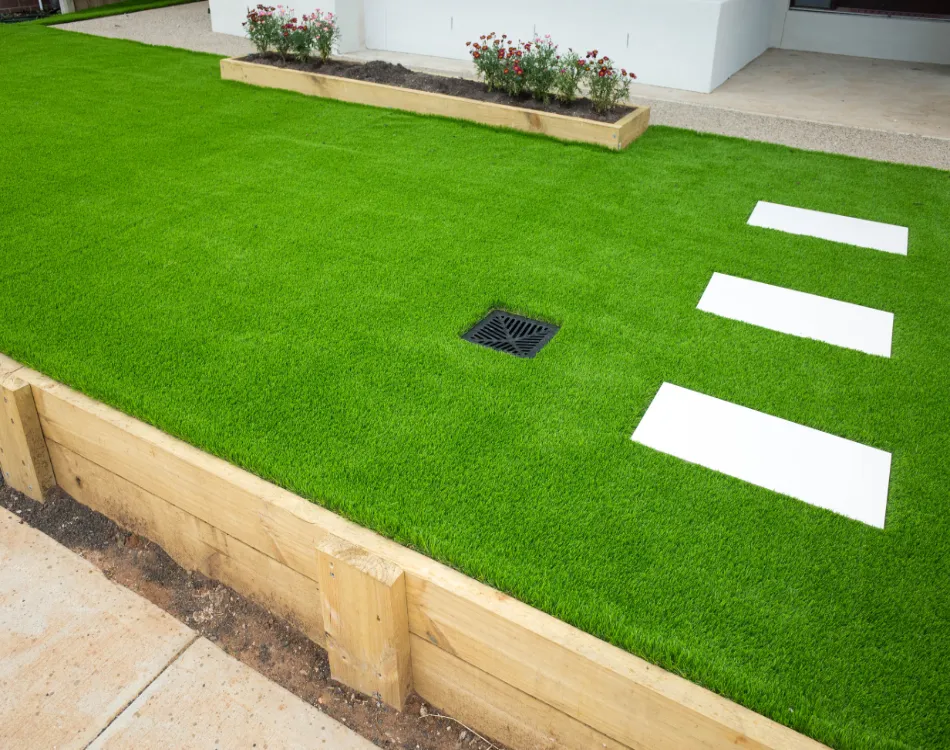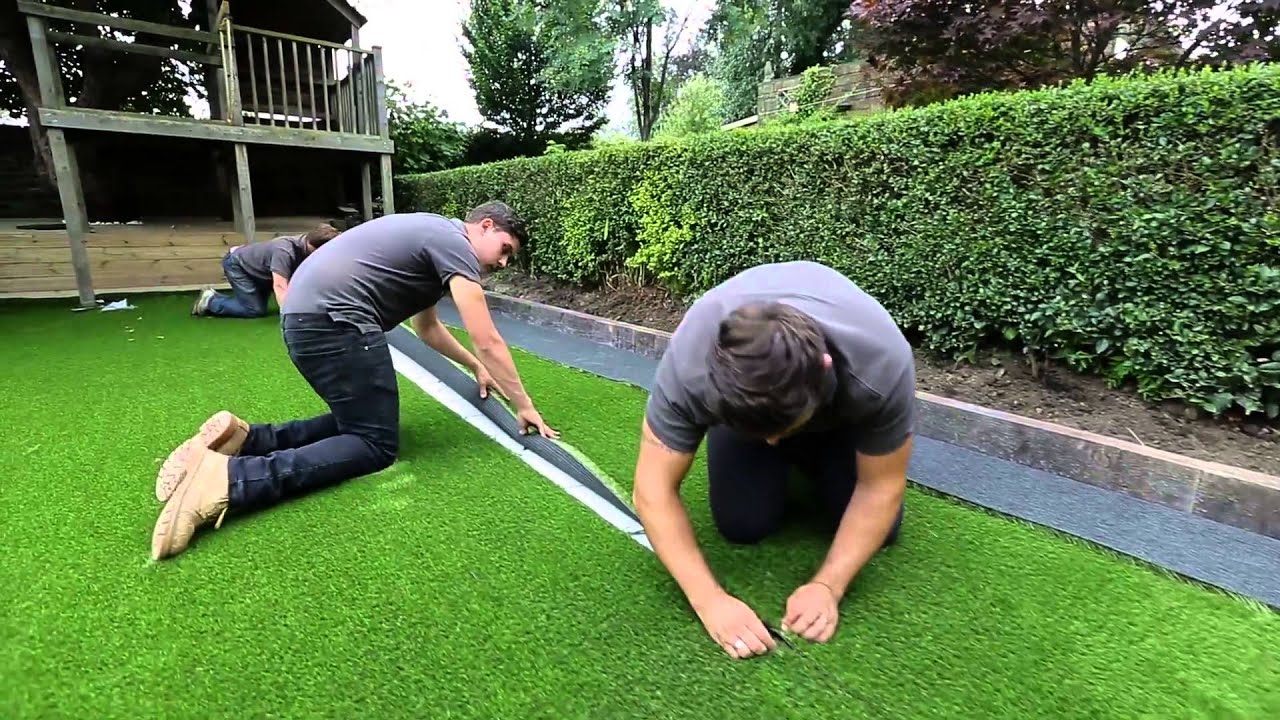Skilled Arizona Turf Installation Services for Home and Commercial Use
Skilled Arizona Turf Installation Services for Home and Commercial Use
Blog Article
Explore the Environmental Benefits of Opting for Artificial Lawn Solutions
The adoption of man-made turf services offers an engaging possibility to deal with pushing ecological obstacles. By significantly minimizing water usage and decreasing the application of damaging chemicals, these choices not just advertise sustainable landscape design however likewise shield neighborhood environments. The lower carbon footprint linked with reduced maintenance activities contributes to a more sustainable approach to land management. The ramifications of these advantages extend beyond mere conservation initiatives, elevating concerns regarding their long-term influence on habitat conservation and overall eco-friendly equilibrium. Exploring these dimensions exposes a complex interplay worth taking into consideration.
Water Conservation Advantages
One of the most substantial advantages of synthetic turf is its capacity to save water. In comparison, man-made lawn does not require watering, significantly reducing the overall need for water sources.
By getting rid of the demand for regular watering, synthetic grass adds to sustainable landscape practices and aids alleviate the ecological effect of too much water usage. Moreover, the conservation of water reaches the decrease of drainage, which can lead to soil erosion and river pollution.
Additionally, the installation of fabricated turf enables homeowners and towns to assign water resources more efficiently, concentrating on crucial uses such as alcohol consumption water and farming. The change in the direction of synthetic grass not just advertises responsible water use however likewise lines up with more comprehensive ecological objectives targeted at maintaining natural resources.
As communities increasingly focus on sustainability, the water conservation advantages of synthetic grass provide a compelling case for its adoption in business and household landscaping projects.
Lowered Chemical Use
The shift to synthetic grass considerably decreases the dependence on chemical therapies frequently used in natural turf maintenance. Standard turf administration generally includes the application of pesticides, herbicides, and fertilizers to promote growth and control insects. These chemicals can posture dangers to human health and wellness, regional wild animals, and the atmosphere, contributing to dirt and water contamination.
In comparison, synthetic grass removes the demand for these dangerous substances. Once set up, it calls for minimal upkeep, largely being composed of regular cleansing and seldom infill replenishment. This decrease in chemical use not just profits the prompt atmosphere yet also adds to more comprehensive environmental security. By decreasing the release of artificial compounds into the ecosystem, synthetic grass advertises healthier dirt and water systems.
Additionally, the lack of chemical runoff connected with synthetic grass setups aids safeguard neighborhood rivers from air pollution, supporting water life and preserving biodiversity. Arizona artificial turf. As communities significantly prioritize sustainable practices, deciding for synthetic grass presents a practical remedy that lines up with ecological conservation objectives. Via this shift, residential property owners can delight in lush eco-friendly areas without endangering eco-friendly health, leading the way for a more sustainable future
Reduced Carbon Footprint

Moreover, the installment of fabricated lawn can cause significant water preservation. All-natural lawns need substantial quantities of water for watering, which not only contributes to the carbon footprint linked with water extraction and therapy yet additionally pressures neighborhood water resources. In contrast, artificial grass requires very little upkeep, needing no watering, therefore considerably lowering water usage and its linked power prices.
Additionally, the durability of artificial turf adds to its reduced carbon impact. With a life expectancy of approximately 15 years or more, the need for frequent replacements is diminished, leading to much less waste and lower energy usage in production and dealing with standard lawn choices. On the whole, man-made grass presents a sustainable option for eco aware landscaping.
Environment Preservation
Environment conservation is an important consideration in the argument over landscape design selections, particularly when contrasting artificial grass to natural lawn. Natural lawn lawns frequently need comprehensive upkeep, consisting of using pesticides, herbicides, and plant foods, which can negatively affect neighborhood ecological communities. These chemicals can leach into the dirt and rivers, damaging native look at this web-site vegetation and animals and interrupting local habitats.
In comparison, synthetic grass offers a possibility to minimize the eco-friendly impact of landscape design. By choosing synthetic turf, property owners can decrease the interruption of all-natural environments connected with typical grass care practices. Fabricated grass removes the requirement for unsafe chemicals, thereby shielding close-by wildlife and preserving the stability of surrounding ecosystems. The setup of man-made turf can lead to the conversion of former lawn areas right into even more biodiverse landscapes, such as pollinator gardens or native plant areas, which can support neighborhood wildlife.
Eventually, the change to synthetic turf not just preserves water and reduces upkeep efforts however also cultivates an extra harmonious connection in between human activities and the natural surroundings, advertising environment preservation at the same time.
Long-Term Sustainability
Lasting sustainability is an essential consider evaluating the benefits of artificial lawn over conventional lawn yards. One of one of the most significant benefits of synthetic grass is its durability; it can last as much as 15-20 years with very little upkeep, whereas all-natural lawn needs regular reseeding and substitute. This durability decreases the demand for constant sources, such as water, fertilizers, and chemicals, which are crucial for keeping try this website a healthy and balanced yard yard.
In addition, synthetic grass adds to a reduction in carbon exhausts connected with yard care equipment. Typical lawns frequently call for gas-powered mowers, leaners, and blowers, all of which add to air contamination. Phoenix turf companies. On the other hand, artificial grass gets rid of the demand for such devices, promoting a cleaner atmosphere
Furthermore, the manufacturing of synthetic lawn progressively uses recycled products, enhancing its sustainability profile. As makers adopt environmentally friendly techniques, the environmental impact of synthetic grass remains to lessen.

Verdict
The fostering of synthetic grass services offers substantial environmental advantages, including considerable water conservation, lowered reliance on dangerous chemicals, and a reduced carbon impact. In addition, synthetic lawn help in protecting natural environments by minimizing land disturbance and advertising lasting sustainability through making use of durable materials. Collectively, these elements emphasize the potential of synthetic grass to add favorably to environmental wellness and offer a feasible choice to typical landscape design techniques in a significantly resource-conscious world.
In contrast, fabricated lawn does not require watering, substantially lowering the total need for water resources. By lessening the release of synthetic substances into the ecosystem, artificial lawn promotes healthier dirt and water systems.
Additionally, the installment of fabricated lawn can result in considerable water preservation. In comparison, synthetic lawn requires marginal upkeep, calling for no watering, therefore substantially reducing water usage and its connected energy costs.

Report this page